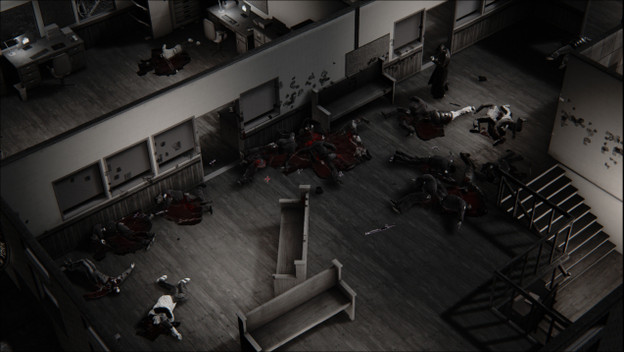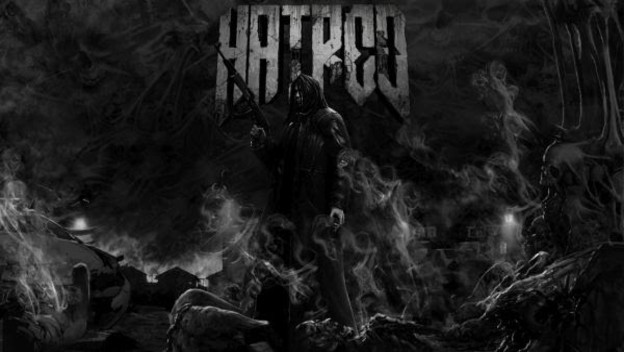There are very few games I hate. Even being a game journalist that has played and reviewed countless games, the amount of games that I hate is small. That being said, if you asked my friends how I feel toward games, they would say that I hate countless games. In fact, they would say that I hate almost every game I play. Let me tell you why that is.
I am no stranger to saying these sorts of things:
“I hate that Call of Duty is on a yearly production cycle. We just end up treading the old ground we have already seen!”
“I hate that every game has a day one patch these days. Haven’t we known how to make mostly stable games from launch ever since the NES era?”
“I hate that games are leaning on DLC so much these days. Don’t we know how to create complete gameplay experiences that don’t charge us another 20 bucks just to see the rest of the story?”
I hate, I hate, I hate! I say I hate a lot. So I would forgive you if you read my articles and thought that I was this salty sailor that didn’t like any game out there.
But all of these statements of hatred are never pointed toward games. They are pointed toward policy. They are pointed toward attitudes that I think are damaging the industry and gaming in general.
Still, in the gaming community there tends to be an inability to tell the two apart. In fact, there seems to be a common attitude that one type of hatred is absolutely needed for the other. “How can you say you hate the Call of Duty yearly cycle, you played a ton of Advanced Warfare ?” I hear people cry.
Yes, I did play a ton of Advanced Warfare . Heck, I LIKED Advanced Warfare . When I sat down and played it, it was a well put together, competent, and fun game. There was nothing about it that was offensive or appalling or worth raising any ire in me. It was a fun shooter.
But even though it was fun, the negative effects of the yearly Call of Duty cycle are apparently. Call of Duty sales have dropped year over year. Shooter sales and interest overall have been dropping, and military shooters in general have been met with a sort of “oh great another carbon copy” attitude. The industry has made a huge shift away from the military shooter with titles like Destiny, Titanfall, Battlefield: Hardline, and the Borderlands franchise. Not only that, but developing shooters on such a rapid cycle like this makes it hard to learn from the successes and failures of the title that came before it. So if Advanced Warfare copied a mistake of Ghosts , that’s because it was well past the point where mechanics could be drastically changed by the time that people realized what they liked and disliked about Ghosts .
And none of this is less true if I admit that I liked Advanced Warfare .

It takes a lot for me, or anyone for that matter, to really hate a game. Most games are competent enough and provide at least a little bit of fun to play. Asura’s Wrath , even though it hid its story behind a pay wall, was still a blast to button mash through. Assassin’s Creed Unity , even though it was broken and glitchy, still had an interesting story and presentation, and the parts that weren’t broken were similarly fun to play. A game has to offend me to elicit hate. It has to stand as an icon worthy of detesting. It takes something with Sonic Boom levels of incompetency, when a studio sees a formula that works, and actively ignores it in pursuit of buzzwords and marketeering to actually get hate out of me.
And yes, I HATE Sonic Boom . I hate it because it shouldn’t be a game that exists. I hate it because it stands as an icon of development teams losing touch with their fanbases. I hate it because there is no good reason why Sega cannot produce a good Sonic game. They have done it in the past. They did it with Sonic Generations . They did it with Sonic 4 . They did it with Sonic Colors … kind of. But they are ignoring their past in an attempt to squeeze more dollars out of an icon we are too attached to, to let go. That brings ire out of me. Heck, I can’t say I hated Sonic Unleashed or Sonic and the Secret Rings and I hate this game.
But there is a reason why I hate it. It is a product of bad policy. Call of Duty isn’t yet at the point where their games are mangled unintelligible incomplete messes as a result of their policy choices. Neither is Assassin’s Creed or Capcom’s library. I might be worried about them going down that path, partially because of not learning from examples like Sonic Boom . When they do put out Call of Duty: Boom , then I’m sure I will hate it too.
But for now, I continue to have fun with games, and I think you do too. I think the world of gaming is a lot more grey than people make it out to be. I think critique is all too often mistaken for hatred, and we try to shift our worldview to black and white scenarios where you either think something is the best thing ever, or you think it should be burned, buried, and pissed on.
And that’s what saying “I hate DLC that blah blah blah” really is. It’s critique. It’s picking apart choices that studios have made and considering the merits and flaws in them. Granted, it may not be the most elegant way to critique something, usually I’ll save that for these dispatches here, but it is critique nonetheless.
Critique is valuable, and we should all strive to critique the games we play more. So try to find the spaces between absolute praise and absolute hate. Hate is such a strong word after all, and I think when we really think about it, there are very few games that we truly hate.
… Though I still hate Sonic Boom .
